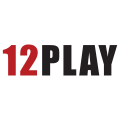Top 10 Nhà Cái Uy Tín Việt Nam – 500K Đăng Ký
Danh sách nhà cái uy tín có thưởng nạp lần đầu 2025: VSbet, 6686, AE888, M88, Fun88, 12Bet, Ta88, 23Win, 1XBet | Xuất bản trên 12/2025
| Xếp hạng | Logo | Thông tin | Khuyến mãi & Ưu điểm | Hành động |
|---|---|---|---|---|
| Đề xuất |  | VSbet ★ ★ ★ ★ ★ 🛡Top nhà cái uy tín | 🔥 Thể Thao Bảo Hiểm Hoàn Cược 100% (hot) 🎁 🤩 Tài Trợ Real Madrid Mùa Giải 2025-2026 Hoàn trả mỗi ngày lên đến 2% Nạp lần đầu tặng 30% - Lần 2 tặng 15% Nổ hũ thắng thua đều hoàn 20% Nhận thưởng thứ 6 hàng tuần Nhà cái được đảm bảo cược 1000 Tỷ | Hoàn trả mỗi ngày lên đến 2% |
| 1 |  | 6686 ★ ★ ★ ★ ★ 🛡Nhà cái uy tín | 🔥 Thể Thao Bảo Hiểm Hoàn Cược 100% (hot) 🎁 Hoàn trả mỗi ngày lên đến 2% Nạp lần đầu tặng 30% - Lần 2 tặng 15% Nổ hũ thắng thua đều hoàn 20% Nhận thưởng thứ 6 hàng tuần Nhà cái được đảm bảo cược 1000 Tỷ | Hoàn trả mỗi ngày lên đến 2% |
| 2 |  | M88 ★ ★ ★ ★ 🛡Top 10 nhà cái uy tín | 🔥 Thưởng chào mừng khủng 150% tại thể thao siêu hấp dẫn 🎁 ✔ Thưởng tới 3.888.000 VND ✔ Tiền nạp tối thiểu 100.000 VNĐ khuyến mãi hấp dẫn mỗi ngày | Thưởng giới thiệu 348.000 VND |
| 3 |  | We88 ★ ★ ★ ★ 🛡Nhà cái uy tín 20vui | 🔥Thưởng miễn phí 100K chỉ cần xác nhận thông tin 🎁 ✔ Thưởng nạp tiền 100% ✔ Hoàn trả không giới hạn tỷ lệ cược cao, thắng lớn | Tải app nhận 50K miễn phí |
| 4 |  | FUN88 ★ ★ ★ ★ 🛡Nhà cái uy tín nhất việt nam | 🔥Thưởng đăng ký mới 100% cho cược thủ mới nạp lần đầu tiên 🎁 ✔ Thưởng tới 6.000.000 VNĐ ✔ Tiền nạp tối thiểu 200.000 VNĐ rút tiền siêu tốc, an toàn | Hoàn trả không giới hạn |
| 5 |  | W88 ★ ★ ★ ★ 🛡Top 20 nhà cái uy tín | 🔥Thưởng đăng ký mới 100% cho cược thủ mới nạp lần đầu tiên 🎁 ✔ Thưởng tới 6.000.000 VNĐ ✔ Tiền nạp tối thiểu 200.000 VNĐ cá cược minh bạch, uy tín | Thưởng 50 vòng quay miễn phí |
| 6 |  | 12Play ★ ★ ★ 🛡Trang cá cược uy tín | 🔥Thưởng độc quyền thành viên mới tặng ngay 100% 🎁 ✔ Thưởng tới 2.000.000 VNĐ ✔ Tiền nạp tối thiểu 200.000 VNĐ bảo mật cao, giao dịch nhanh | Cơ hội trúng iPhone 16 Promax |
| 7 |  | BK8 ★ ★ ★ 🛡Top nhà cái uy tín nhất | 🔥Tặng 100% cho thành viên đăng ký mới ngày hôm nay 🎁 ✔ Thưởng tới 2.000.000 VNĐ ✔ Tiền nạp tối thiểu 250.000 VNĐ ưu đãi cực lớn cho người chơi | Hoa hồng vĩnh viễn khi giới thiệu bạn bè |
| 8 |  | JBO ★ ★ ★ 🛡Trang nhà cái uy tín | 🔥Thưởng 100% cho thành viên đăng ký và nạp tiền lần đầu 🎁 ✔ Thưởng tới 5.000.000 VNĐ ✔ Tiền nạp tối thiểu 200.000 VNĐ tỷ lệ bóng đá cực kỳ hấp dẫn | Thưởng 50K + 50 vòng quay miễn phí |
| 9 |  | 188BET ★ ★ ★ 🛡Nhà cái bóng đá uy tín | 🔥Thưởng cược xâu 300 triệu VNĐ siêu khủng 🎁 ✔ Chỉ dành cho tiền tệ USD hoặc VNĐ ✔ Đặt cược tối thiểu 1 cược xâu cá cược an toàn, thanh toán nhanh | Tặng thưởng 300 triệu đồng cược xâu |
| 10 |  | E2BET ★ ★ ★ 🛡Nhà cái uy tín số 1 | 🔥 Hoàn thua tại thể thao 6.88% cực hấp dẫn 🎁 ✔ Thưởng tới 3.888.000 VNĐ ✔ Tiền nạp tối thiểu 10.000 VNĐ nền tảng uy tín, khuyến mãi khủng | Thưởng giới thiệu tới 10 triệu VNĐ |

VSbet
Nhà cái uy tín hàng đầu
Xếp hạng: ★★★★★
Tiền nạp tối thiểu
200.000 VND sau khi xác minh tài khoản
Phương thức thanh toán
Chuyển khoản ngân hàng, chuyển tiền trực tuyến, ví điện tử (Momo, ZaloPay), tiền điện tử
Giấy phép hoạt động
Được cấp phép bởi Cộng hòa Vanuatu
Khuyến mãi đặc biệt
- Thể Thao Bảo Hiểm Hoàn Cược 100%
- Tài trợ Real Madrid Mùa Giải 2025-2026
- Hoàn trả mỗi ngày lên đến 2%
- Nạp lần đầu tặng 30% - Lần 2 tặng 15%
- Nổ hũ thắng thua đều hoàn 20%
- Nhận thưởng thứ 6 hàng tuần

6686
Nhà cái uy tín
Xếp hạng: ★★★★★
Tiền nạp tối thiểu
100.000 VND sau khi xác minh tài khoản
Phương thức thanh toán
Chuyển khoản ngân hàng, chuyển tiền trực tuyến, ví điện tử, thẻ cào
Giấy phép hoạt động
Được cấp phép bởi Curacao eGaming
Khuyến mãi đặc biệt
- Thể Thao Bảo Hiểm Hoàn Cược 100%
- Hoàn trả mỗi ngày lên đến 2%
- Nạp lần đầu tặng 30% - Lần 2 tặng 15%
- Nổ hũ thắng thua đều hoàn 20%
- Nhận thưởng thứ 6 hàng tuần

M88
Top 10 nhà cái uy tín
Xếp hạng: ★★★★★
Tiền nạp tối thiểu
200.000 VND sau khi xác minh tài khoản
Phương thức thanh toán
Chuyển khoản ngân hàng, chuyển tiền trực tuyến, tiền điện tử
Giấy phép hoạt động
Được cấp phép bởi Isle of Man Gambling Supervision Commission
Khuyến mãi đặc biệt
- Thưởng chào mừng khủng 150% tại thể thao
- Thưởng tới 3.888.000 VND
- Tiền nạp tối thiểu 100.000 VNĐ

We88
Nhà cái uy tín 20vui
Xếp hạng: ★★★★★
Tiền nạp tối thiểu
100.000 VND sau khi xác minh tài khoản
Phương thức thanh toán
Chuyển khoản ngân hàng, ví điện tử, thẻ cào
Giấy phép hoạt động
Được cấp phép bởi CEZA, Philippines
Khuyến mãi đặc biệt
- Thưởng miễn phí 100K chỉ cần xác nhận thông tin
- Thưởng nạp tiền 100%
- Hoàn trả không giới hạn

FUN88
Nhà cái uy tín nhất việt nam
Xếp hạng: ★★★★★
Tiền nạp tối thiểu
200.000 VND sau khi xác minh tài khoản
Phương thức thanh toán
Chuyển khoản ngân hàng, chuyển tiền trực tuyến, ví điện tử
Giấy phép hoạt động
Được cấp phép bởi Isle of Man Gambling Supervision Commission
Khuyến mãi đặc biệt
- Thưởng đăng ký mới 100% cho cược thủ mới
- Thưởng tới 6.000.000 VNĐ
- Tiền nạp tối thiểu 200.000 VNĐ

W88
Top 20 nhà cái uy tín
Xếp hạng: ★★★★★
Tiền nạp tối thiểu
100.000 VND sau khi xác minh tài khoản
Phương thức thanh toán
Chuyển khoản ngân hàng, ví điện tử, thẻ cào
Giấy phép hoạt động
Được cấp phép bởi CEZA, Philippines
Khuyến mãi đặc biệt
- Thưởng đăng ký mới 100% cho cược thủ mới
- Thưởng tới 6.000.000 VNĐ
- Tiền nạp tối thiểu 200.000 VNĐ

12Play
Trang cá cược uy tín
Xếp hạng: ★★★★
Tiền nạp tối thiểu
200.000 VND sau khi xác minh tài khoản
Phương thức thanh toán
Chuyển khoản ngân hàng, chuyển tiền trực tuyến, ví điện tử
Giấy phép hoạt động
Được cấp phép bởi Curacao eGaming
Khuyến mãi đặc biệt
- Thưởng độc quyền thành viên mới tặng ngay 100%
- Thưởng tới 2.000.000 VNĐ
- Tiền nạp tối thiểu 200.000 VNĐ

BK8
Top nhà cái uy tín nhất
Xếp hạng: ★★★★
Tiền nạp tối thiểu
250.000 VND sau khi xác minh tài khoản
Phương thức thanh toán
Chuyển khoản ngân hàng, chuyển tiền trực tuyến, ví điện tử
Giấy phép hoạt động
Được cấp phép bởi Curacao eGaming
Khuyến mãi đặc biệt
- Tặng 100% cho thành viên đăng ký mới ngày hôm nay
- Thưởng tới 2.000.000 VNĐ
- Tiền nạp tối thiểu 250.000 VNĐ

JBO
Trang nhà cái uy tín
Xếp hạng: ★★★★
Tiền nạp tối thiểu
200.000 VND sau khi xác minh tài khoản
Phương thức thanh toán
Chuyển khoản ngân hàng, chuyển tiền trực tuyến, ví điện tử
Giấy phép hoạt động
Được cấp phép bởi Curacao eGaming
Khuyến mãi đặc biệt
- Thưởng 100% cho thành viên đăng ký và nạp tiền lần đầu
- Thưởng tới 5.000.000 VNĐ
- Tiền nạp tối thiểu 200.000 VNĐ

188BET
Nhà cái bóng đá uy tín
Xếp hạng: ★★★★
Tiền nạp tối thiểu
200.000 VND sau khi xác minh tài khoản
Phương thức thanh toán
Chuyển khoản ngân hàng, chuyển tiền trực tuyến, ví điện tử
Giấy phép hoạt động
Được cấp phép bởi Isle of Man Gambling Supervision Commission
Khuyến mãi đặc biệt
- Thưởng cược xâu 300 triệu VNĐ siêu khủng
- Chỉ dành cho tiền tệ USD hoặc VNĐ
- Đặt cược tối thiểu 1 cược xâu
Top Nhà Cái Uy Tín Cho Dân Cược Chuyên Nghiệp – App Tối Ưu, Tỷ Lệ Cao
VSbet luôn nằm trong top nhà cái uy tín nhất nhờ vào khả năng cung cấp trải nghiệm cá cược liền mạch, hỗ trợ đa nền tảng và chính sách ưu đãi rõ ràng. Chúng tôi là nhà cái tặng tiền ngay khi đăng ký, giúp người chơi có thể thử sức mà không lo rủi ro. Với sự đầu tư nghiêm túc và tầm nhìn dài hạn, VSbet hướng tới việc dẫn đầu trong danh sách top nha cai uy tin tại Việt Nam.
| 1 | VSbet - Nhà cái cá cược nổi bật tại Việt Nam với các dịch vụ cá cược thể thao, casino và game bài trực tuyến. Với giao diện dễ sử dụng, tỷ lệ cược cao và khuyến mãi hấp dẫn, VSbet mang đến cho người chơi những trải nghiệm cá cược tuyệt vời và an toàn. |
| 2 | 6686 - Cá cược thể thao hấp dẫn với nhiều sảnh lớn: CMD, SABA, SBO – cược live mọi lúc mọi nơi. |
| 3 | FB88 - Nhà cái cá cược thể thao uy tín, FB88 cung cấp các trò chơi thể thao, casino và game bài hấp dẫn. Với hệ thống thanh toán nhanh chóng và bảo mật tuyệt đối, FB88 luôn là sự lựa chọn an toàn cho những người yêu thích cá cược trực tuyến. |
| 4 | Sunwin - Sunwin là lựa chọn lý tưởng cho những ai yêu thích cá cược trực tuyến, với tỷ lệ cược hấp dẫn, các trò chơi thể thao và casino đa dạng và dịch vụ chăm sóc khách hàng chu đáo. |
Câu Hỏi Thường Gặp
Hiện nay, có nhiều nhà cái uy tín mà người chơi có thể truy cập và trải nghiệm trên điện thoại. Một số nhà cái nổi bật bao gồm Bet365, M88, 188Bet, Betfair, và W88. Những nhà cái này cung cấp ứng dụng di động hoặc trang web tối ưu hóa cho điện thoại, cho phép người dùng dễ dàng tham gia cá cược mọi lúc, mọi nơi. Bên cạnh đó, 1XBET, Fun88, SBOBET, VN138, và ZBET cũng là những lựa chọn phổ biến. Khi lựa chọn nhà cái, người chơi nên xem xét các yếu tố như giấy phép hoạt động, độ tin cậy, dịch vụ khách hàng và các phương thức thanh toán để đảm bảo trải nghiệm cá cược an toàn và thú vị.
Khi chơi cá cược tại Việt Nam, việc lựa chọn nhà cái an toàn là rất quan trọng để bảo vệ quyền lợi của mình. Một trong những nhà cái được nhiều người tin tưởng là Bet365, vì nó có giấy phép hoạt động quốc tế và cung cấp dịch vụ khách hàng tốt. Ngoài ra, 188Bet cũng được biết đến với độ tin cậy cao và nhiều phương thức thanh toán an toàn. Người chơi nên kiểm tra các đánh giá và phản hồi từ cộng đồng trước khi quyết định tham gia. Bên cạnh đó, việc chơi có trách nhiệm và không đặt cược quá mức cho phép cũng là yếu tố cần thiết để bảo đảm an toàn khi tham gia cá cược.
Đánh Giá Từ Người Chơi
One88 đổi điểm thành tiền tiện. Tích lũy 3 tháng đổi được 2 triệu, mua máy xay sinh tố mới, vợ khen!
6686 luôn làm tôi hài lòng với các trò chơi cá cược thể thao đa dạng và tỷ lệ cược luôn ổn định. Dịch vụ chăm sóc khách hàng cũng rất chuyên nghiệp.
12bet luôn hỗ trợ tôi rất nhiệt tình khi tôi gặp vấn đề và các giao dịch rất nhanh chóng.
23win là nhà cái mà tôi luôn đánh giá cao. Dịch vụ của họ luôn rất nhanh chóng và tỷ lệ cược rất hấp dẫn.
98win có các khuyến mãi rất tốt và tôi đã thắng rất nhiều trong các trò chơi cá cược tại đây, thưởng hấp dẫn.
